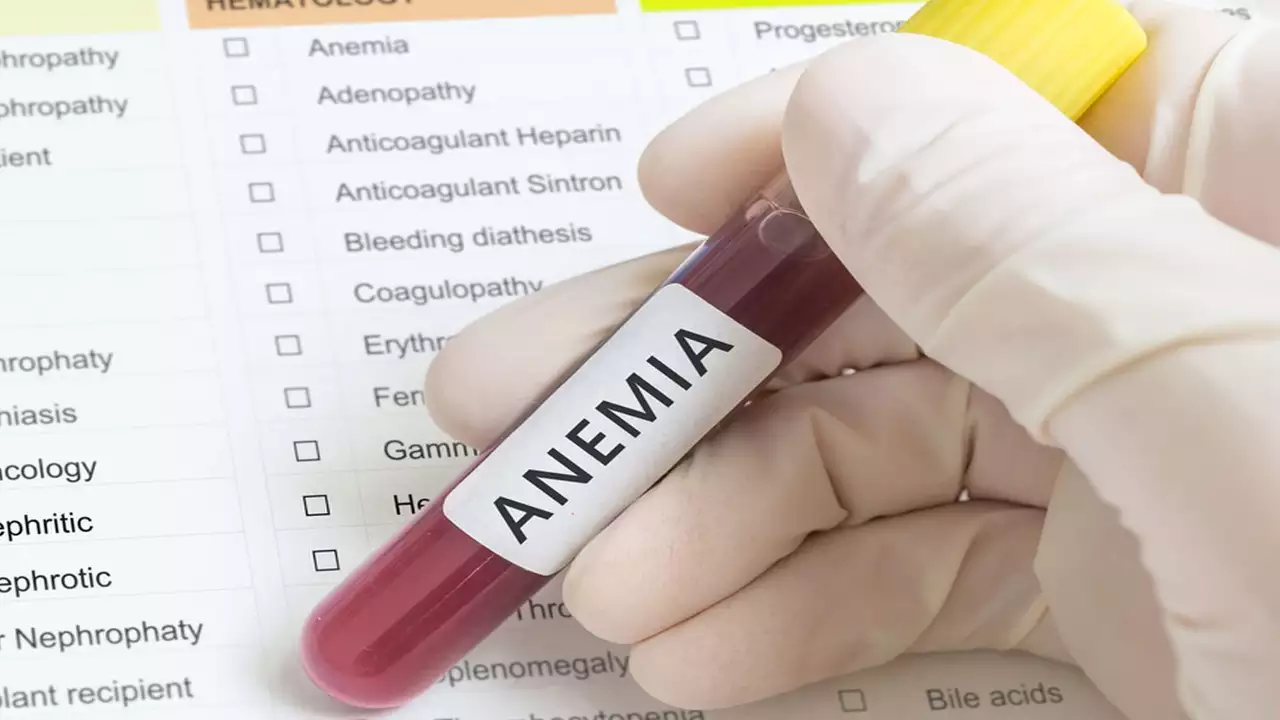Ever felt like you’re constantly running on fumes, even after a good night’s sleep? You might be dealing with anemia, a common condition where your body doesn’t have enough healthy red blood cells. These tiny powerhouses carry oxygen throughout your body, giving you the energy to tackle your day. When your red blood cell count dips, oxygen delivery suffers, leaving you feeling tired, weak, and breathless.
This article dives deep into anemia, explaining its causes, symptoms, types, and the best ways to manage it. So, ditch the lethargy and take charge of your health!
Understanding Anemia: The Lowdown on Red Blood Cells
Red blood cells are the tireless workhorses of your circulatory system. They’re packed with hemoglobin, an iron-rich protein that binds to oxygen in your lungs and delivers it to every nook and cranny of your body. This constant oxygen flow fuels your cells, keeping you energized and your organs functioning smoothly.
Now, anemia disrupts this vital process. There can be several reasons for this:
- Not Enough Red Blood Cells: Your body might not be producing enough red blood cells in the first place. This could be due to iron deficiency, vitamin deficiencies (especially B12 and folate), bone marrow problems, or certain chronic illnesses.
- Faulty Red Blood Cells: Even if your body produces enough red blood cells, they might be malfunctioning. They could be abnormally shaped or have inadequate hemoglobin, hindering their oxygen-carrying capacity.
- Excessive Blood Loss: Blood loss, whether through heavy menstrual periods, injuries, or internal bleeding, can deplete your red blood cell count.
Listen to Your Body: Signs and Symptoms of Anemia
Anemia often whispers its presence through subtle signs. Here’s what to watch out for:
- Extreme Fatigue and Weakness: Feeling constantly drained and lacking the energy to do your usual activities is a classic symptom.
- Pale Skin, Nails, and Gums: The reduced oxygen circulation can make your skin appear pale, and your nails and gums might look paler than usual.
- Shortness of Breath: As your body struggles to get enough oxygen, you might experience breathlessness, especially during exertion.
- Lightheadedness and Dizziness: The dip in oxygen supply can affect blood flow to your head, causing dizziness and lightheadedness.
- Cold Hands and Feet: Reduced circulation can make your extremities feel cold to the touch.
- Brittle Nails and Hair: Anemia can affect the health of your hair and nails, making them brittle or prone to breakage.
- Rapid Heartbeat (Tachycardia): Your heart might start working overtime to compensate for the lack of oxygen delivery.
Not All Anemia is Created Equal: Different Types and Causes
Anemia comes in various forms, each with its own cause:
- Iron-Deficiency Anemia: The most common type, caused by a lack of iron, a crucial component of hemoglobin.
- Vitamin Deficiency Anemia: A deficiency in vitamin B12 or folate can hinder red blood cell production.
- Aplastic Anemia: A rare condition where your bone marrow doesn’t produce enough red blood cells.
- Sickle Cell Anemia: An inherited disorder where red blood cells are sickle-shaped, causing blockages in blood vessels.
- Thalassemia: Another inherited condition that affects hemoglobin production.
- Anemia of Chronic Disease: Certain chronic illnesses like inflammatory bowel disease or kidney disease can lead to anemia.
Combating the Drain: Diagnosis and Treatment of Anemia
If you suspect anemia, a simple blood test can confirm the diagnosis and identify the specific type. Based on the results, your doctor will recommend the best course of treatment. Here are some common approaches:
- Iron Supplements: For iron-deficiency anemia, iron supplements are the mainstay of treatment.
- Dietary Changes: Including iron-rich foods like red meat, poultry, leafy greens, and lentils in your diet can significantly improve your iron levels.
- Vitamin Supplements: If vitamin deficiencies are causing your anemia, your doctor will prescribe specific vitamin supplements.
- Medications: In some cases, medications like erythropoietin (EPO) might be needed to stimulate red blood cell production.
- Blood Transfusions: In severe cases of blood loss or certain types of anemia, blood transfusions might be necessary.
Winning the Battle Against Anemia: Lifestyle Tips and Prevention
While anemia can be a hassle, there are ways to manage it effectively and even prevent it from developing in the first place:
- Eat a Balanced Diet: Focus on a healthy diet rich in iron, vitamin B12, and folate. Include plenty of fruits, vegetables, whole grains, and lean protein sources.
- **Maintain a Healthy Weight



